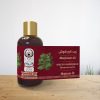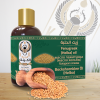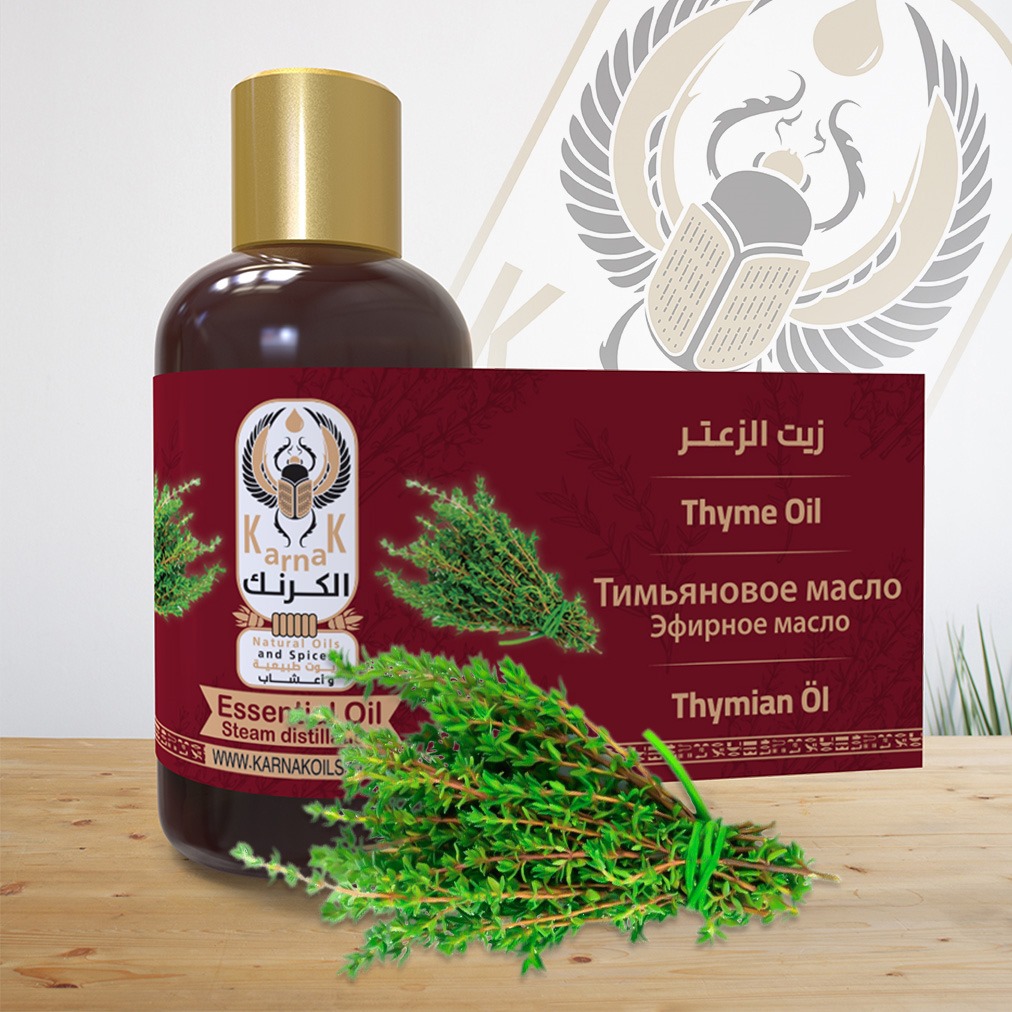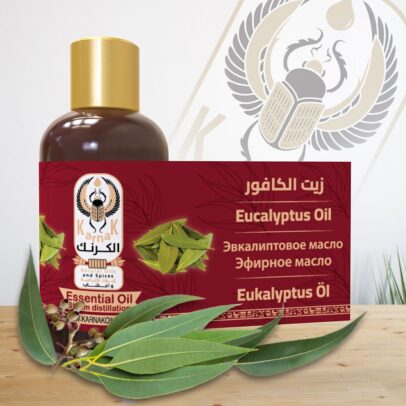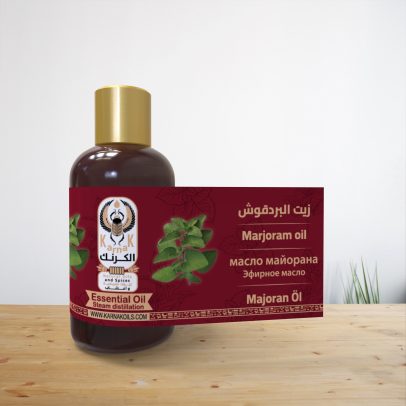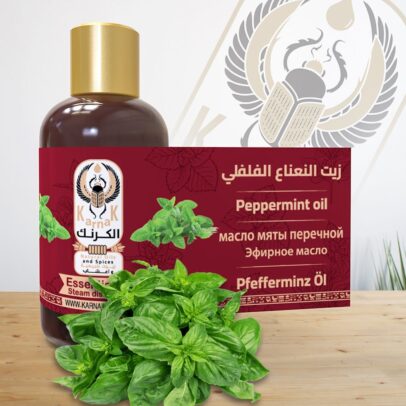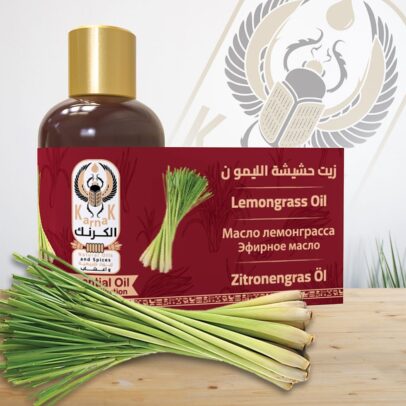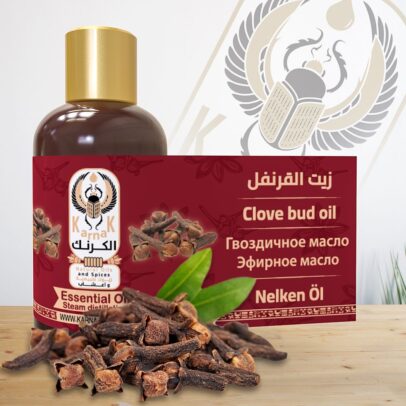Get 25% discount on your first order!
20.00 $
Thyme Oil
Add to cart
Buy Now
The ancient Egyptians used thyme as an embalming fluid. In ancient Greece, they used thyme as an incense in temples and added it to bathwater.
The Romans used thyme as a flavoring for cheese and alcoholic beverages. They are also supposedly offered it as a cure people for who were melancholic or shy. The Roman army introduced thyme to the British Isles when they conquered the land.
Hippocrates, who lived around 460 BCE to 370 BCE and is known today as “the father of Western medicine,” recommended thyme for respiratory diseases and conditions. People grew thyme in gardens and gathered it in the countryside.
When the Black Death took hold of Europe in the 1340s, people would wear posies of thyme for protection.
Scientific research does not support this specific use but has shown thyme to have a range of medicinal properties that modern people can put to beneficial use.
Active ingredients:
thymol as the major constituent, carvacrol, p-cymene, ɤ-terpinene, linalool, β-myrcene and terpinen-4-ol, vitamin A and vitamin C, B-complex vitamins, mainly vitamin B6 (pyridoxine), Vitamin K, vitamin E and folic acid, an excellent source of zinc, copper, potassium, calcium, iron, manganese, magnesium and selenium.
Benefits:
1. Improves Heart Health
A strong anti-inflammatory and antioxidant property of thyme helps in reducing inflammation, which is the main cause of heart ailments. Thyme oil packed with phytonutrients promote cardiac health by improving the functioning of the cardiac valves, relaxing the veins, and arteries and strengthening heart muscles.
Thyme helps in treating atherosclerosis, a major form of cardiovascular disease.
2. Controls Blood Pressure
Thyme is loaded with potassium, a vital mineral, which is an essential component of cell and body fluids. It aids in regulating heart rate and maintaining blood pressure under normal levels. Sipping a refreshing cup of thyme tea reduces blood pressure in hypertensive patients and improves blood circulation.
3. Treats Respiratory Issues (cold and cough)
Remember what Hippocrates told 2300 years ago? Yes. And we already discussed this. Thyme boosts immunity, and this helps treat most respiratory issues. And even otherwise, thyme has been used traditionally to treat respiratory ailments like bronchitis and cough. In fact, thyme has been approved by The German Commission E (a governmental regulatory agency) for its use in treating respiratory discomfort.
Blessed with antiseptic and antibiotic traits, thyme tea is a sure shot remedy for common cold and cough. Further, the essential oil possesses strong antimicrobial properties which are used majorly for treating sore throats and bronchitis. The presence of carvacrol content in thyme oil helps in providing relief from sore throat.
4. Helps Fight Cancer
Thyme may help prevent cancer, especially that of the colon. These properties can be attributed to its constituents some of which include oleanolic acid, ursolic acid, lutein, and beta-sitosterol.
Another major component of thyme essential oil that helps prevent cancer is carvacrol, one study found that carvacrol can inhibit the proliferation and migration of cancer cell lines. The compound exhibits therapeutic effects towards the treatment and possible prevention of cancer, especially colon cancer.
Thyme also had a beneficial effect on breast cancer. The herb had shown to have positive effects on the treatment of breast cancer by potentially increasing cancer cell death.
5. Treats Inflammation
Studies have shown that thyme oil can suppress COX-2, which is an inflammatory enzyme that leads to several inflammatory ailments. Carvacrol, the major chemical in the oil, was found to play a role in this. Carvacrol was found to suppress inflammation similar to resveratrol – another powerful compound in red wine that has been linked to several health benefits.
Carvacrol and thymol in thyme essential oil can fight inflammation. The oil is also used to ease the painful symptoms of arthritis and gout.
6. Boosts Immunity
Thyme is a good source of Vitamin C and Vitamin A – both these nutrients help boost immunity and stop that oncoming cold right in its tracks.
Thyme also supports the formation of white blood cells, thereby boosting the immune system. It contains flavonoids whose anti-inflammatory properties also help boost the immunity. Given its mild scent and flavor, it can be used in a steam tent for help with cold and congestion.
Thyme can also accelerate wound healing. Its local application can help achieve this.
7. Aids in the treatment of Dyspraxia
Also called Developmental Coordination Disorder (DCD), dyspraxia is a neurological disorder that affects movement. Thyme has been found to improve the symptoms of this disease, especially in children.
Thyme oil was also one of the oils used in a study to find the effects of essential oils in the treatment of neurological ailments like dyspraxia. And the results of the study showed promise.
However, we still need more studies to form a concrete base in this regard.
8. Improves Digestive Health
Thyme is known to prevent the increase of harmful gases in the stomach, thereby boosting digestive health. This effect can be attributed to the volatile oils in thyme that offer carminative (reducing gas) properties. Thyme also works as an antispasmodic and helps relieve intestinal cramps.
9. Helps Relieve Menstrual Issues
One study tells us how thyme may help in reducing the pain in dysmenorrhea (painful menstruation that involves abdominal cramps).
10. Improves Vision Health
Being intrinsically rich in vitamin A, an antioxidant this aromatic herb improves eyesight and lowers the risk of age-related macular degeneration, glaucoma, and cataracts. It also contains a wealth of phenolic compounds, which protect mucus membranes and optic cells from oxidative damage. Consuming an infusion of thyme or using thyme oil eases dry eye problems.
11. Enhances Oral Health
Thyme oil can help relieve infections of the oral cavity. The oil displayed great efficacy against bacteria that had grown resistant to antibiotics.
You can also use thyme as a mouthwash for maintaining your oral health. Simply add one drop of the oil to a cup of warm water. Swish in your mouth and spit it out.
Thyme oil can also act as an effective antiseptic treatment against oral pathogens. A few other oral issues thyme can help with are gingivitis, plaque, tooth decay, and bad breath. The antibacterial and antiseptic properties of thyme help achieve this. And thymol, the component in thyme, can be used as a dental varnish to protect the teeth from decaying.
12. May Help Relieve Headaches
The carvacrol in thyme gets the credit here. This compound inhibits COX2 (as we saw), pretty much like an anti-inflammatory drug. You just have to dab a few drops of thyme essential oil on your temples and forehead. Gently rub into your skin and stay put for a while until you feel relief.
Thyme oil can relieve stress; the antioxidants in it protect your cells from stress and toxins.
Thyme essential oil might also boost your mood if inhaled.
13. Improves Skin Health
Given its antibacterial and antifungal properties, thyme oil can protect your skin from related infections. It works as a home remedy for acne. The oil also heals sores, wounds, scars, and cuts. It even relieves burns and acts as a natural remedy for skin rashes.
Thyme oil may help reduce the symptoms of eczema as well, the embarrassing skin condition with dry and itchy scales that blister and crack. Eczema is often caused by poor digestion and stress , and since thyme improves the two conditions, it can help heal eczema as well.
And since thyme is high in antioxidants, it can slow down the aging process and give you healthy and glowing skin.
For treating acne, you can use thyme along with witch hazel. Steep the two in hot water for about 20 minutes. Then, use a cotton ball to apply to the affected areas. Wait for 20 minutes and then wash off with warm water.
14. Good for Hair
Thyme, when combined with other herbs, may promote hair growth. You can simply apply lavender oil mixed with thyme oil on your hair; certain studies show this method can improve hair growth in 7 months.
Thyme tea can also be used as a hair rinse as a cure for dandruff.
| size |
|---|


